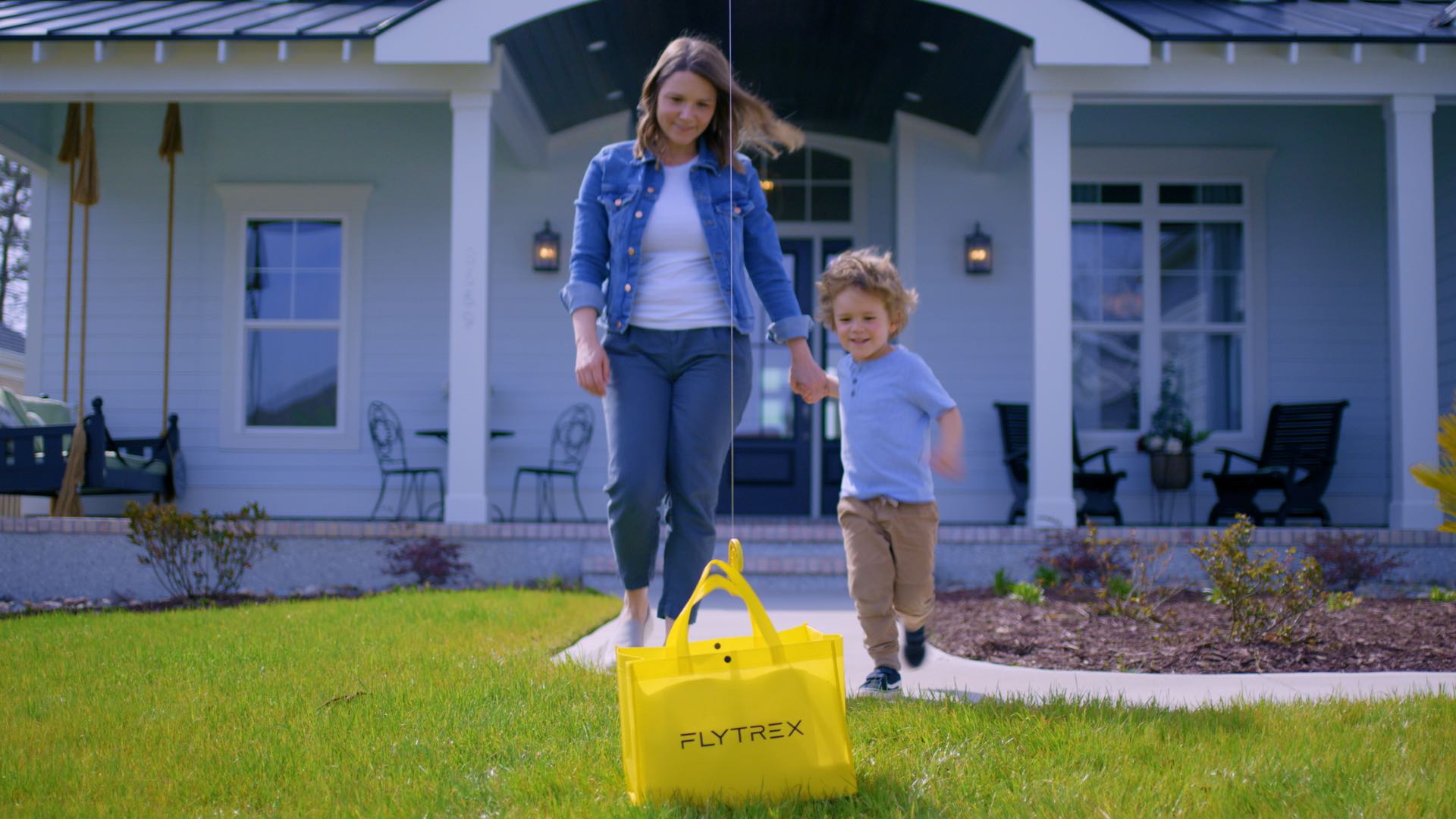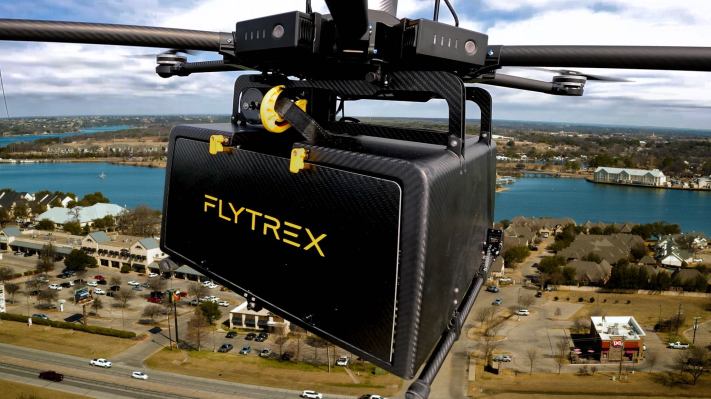We’re still very much in the baby steps of drone delivery, at the moment. It’s a category that’s seen both its share of setbacks (Amazon layoffs) and milestones (Wing’s 200,000th delivery). Understandably, not everyone is impressed with the idea of the notion, but a number of startups continue making gains in the space.
Israeli firm Flytrex, for instance, just announced expansion outside of North Carolina. Starting today, it will be operating outside of Granbury, Texas, a town of roughly 10,000 located in the greater Dallas/Forth Worth metroplex (and, Wikipedia tells me, one time-home to Chewbacca actor, Peter Mayhew).
The expansion finds the firm broadening its partnership with Brinker International, the restaurant conglomerate that owns familiar chains like Chili’s and Maggiano. Those who live within range can order food from those spots via the Flytrex app. The company says food should be delivered to a front or backyard in less than five minutes.
All told, the drone’s potential range is one nautical mile, courtesy of an FAA waiver. The company says it’s working toward a much broader expansion in the United States.

Image Credits: Flytrex
“We’re thrilled to be soaring into the Lone Star State – an outsized achievement for ultrafast home delivery,” founder and CEO Yariv Bash says in a release. “After establishing drone delivery as a preferred option in North Carolina, we are excited to bring our unrivaled speed and convenience to Texas, where big things happen. We look forward to bringing drone delivery to backyards across the U.S. as we expand our service nationwide.”
Founded in 2013, Flytrex piloted its first drone deliveries in Reykjavik, Iceland back in 2017. Last November, it raised $40 million, bringing its total funding up to $60 million — money that’s gone toward expanding its deliveries to additional suburban areas. In addition to Brinker, the company has also piloted deliveries for Walmart in North Carolina, where it’s working with the state’s Department of Transportation in order to clear regulatory hurdles.
Certainly the company’s suburban approach makes a lot of sense. It’s hard to imagine a full-scale roll out of drone deliveries in a densely packed urban environment, but, I suppose as the saying goes, the sky’s the limit.
